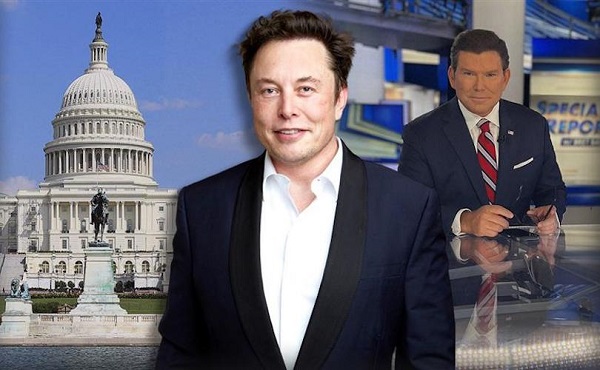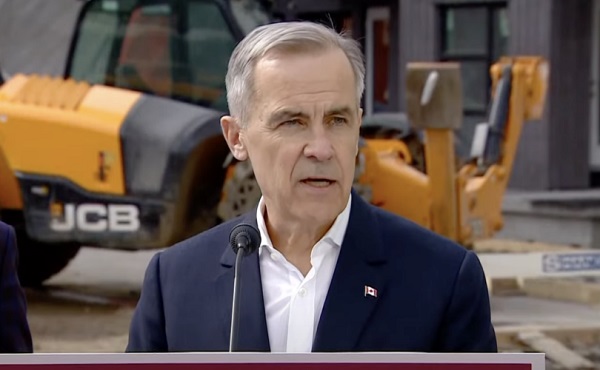Business
Mill Street Brewery – Setting The Bar For Energy Efficiency

Mill Street Brewery, born out of the Toronto Distillery District, their story begins with the emergence of a small red brick brewery back in 2002. Over the last two decades, one thing has consistently taken precedence over their process. Care and consideration for their environmental footprint on the commercial and local level.
The IBM Institute for Business Value (IBV), in association with the National Retail Federation, conducted a research study of 18,980 consumers in 28 countries. Some of this data reported 57% of consumers would pivot their spending habits for more environmentally friendly brands. In line with the efforts by the Mill Street Brewery team, the study also reports 77% of consumers consider sustainability and environmentally responsible brands important when asked about their spending habits.
Not often do we deep dive into what our favourite brands are proactively doing to increase their green initiatives, whether it be energy efficiency, consumption, recycling or waste management. Fortunate to have the opportunity to speak with Kaitlin Vandenbosch, Brewmaster for Mill Street Brewery and Bennie Dingemanse, Head Brewer at the Mill Street Brewery Calgary Brewpub to discuss their efforts as an organization and also what it means to their team as they continue to improve their environmentally friendly initiatives.

An interesting story to tell behind this brand, continuing to produce their Original Organic Lager since the day their doors opened. Continuously seeking new ways as a team to reduce their energy consumption and environmental footprint. Serving local areas in Toronto, Calgary, Vancouver, Ottawa and St. Johns, Mill Street is the largest producer of certified organic beer in Canada. The best part is that their certified organic pale barley malt is Canadian grown & processed. The barley they use is grown in Saskatoon and Alberta, then malted in Thunder Bay, Ontario. Kaitlin offers some additional insight into sourcing local as an organization.
“It used to be very difficult to find raw organic materials back in 2002, over the years we have worked very closely with the barley malt industry in North America and Canada Malting. Since 2007, working with these organizations, we were able to transition all of our organic malts to be grown in Canada on the prairies and they certified their facility in Thunder Bay to process that malt for us. Around 15-20 Canadian farmers grow the grains that are used in our organic beers.”
Being one of the largest breweries in Canada, the importance of having educated professionals working as a team to implement set targets to work towards is a great way to continuously improve and reduce their emissions. Kaitlin mentions exceeding some of the targets they set for 2019.
“For 2019, we had targets set a for 10% energy and water reduction and a 4% increase in waste divergence. We exceeded all of those targets. Working with our various operations and maintenance teams, engineers, the city and the companies that pick up our waste. We have had a 12.5% reduction in energy usage, a 17% decrease in water consumption, and a 12.5% increase in divergence of waste. It is something that we are always looking at both in our production facility and our brewpubs.”

Mill Street has one Brewpub location in Calgary managed by Head Brewer, Bennie Dingemanse. Located on 17th Avenue SW, serving Mill Street house-brewed products and great food in the most vibrant part of the city. The green initiatives continue to be a key driver for the Brewpub team, Bennie offers his thoughts on working towards a cleaner future in his Calgary location.
“We divert our waste stream from our restaurant with our waste collection service providers. After collecting data from just our first quarter, we saved 2.2 barrels of oil, we saved about 14 trees, close to 4,000Kw/h of energy and 22,000 liters of water just by diverting our waste and having it properly disposed of. Another thing we do on the Brewpub level is looking at new methods when cleaning our tanks, where we analyze our water usage and work towards minimizing our wastewater while achieving the same result.”
Not only that, but Bennie and his team have proactively found ways to have their waste material exported so that it can be repurposed for commercial use by local merchants. One example is a partnership with coRISE, who actively utilize spent grain from the Calgary Brewpub for baked goods to sell in the local community. Bennie and his team have also been extracting sugar from spent material, combining it with food waste from the restaurant to be turned into compost.
As we continue to navigate this mid-to-post pandemic; breweries, restaurants and bars alike have adopted eCommerce to serve their customers. Mill Street has a variety of options to continue offering its house-brewed products and menu. Delivery is available on UberEats, SkipTheDishes, Doordash and from their Calgary website. As an added benefit, Bennie mentions that they recently updated their delivery radius to service areas outside of the downtown core.
Visiting The Mill Street Calgary Brewpub
To stay updated, Bennie recommends following his location on social media for any future updates on guidelines or new product releases. On the Brewpub level, following all Alberta Health Services recommendations in regards to capacity and sanitization. They have implemented new cleaning policies, hand sanitizer as you enter and staff are washing their hands regularly. Recently partnering with a local startup called LivCity that has developed an app for contactless ordering from your table using your smartphone, mitigating interactions between customers and staff in the efforts of social distancing.
If you would like to learn more about the forward-thinking initiatives being implemented by the Mill Street Brewery team, or to browse their wide array of products available, visit their main website here, Calgary Brewpub website or follow them on their social media accounts below.
Mill Street Calgary Brewpub Facebook
For more stories, visit Todayville Calgary
Business
Labor Department cancels “America Last” spending spree spanning five continents

 MxM News
MxM News
Quick Hit:
The U.S. Department of Labor has scrapped nearly $600 million in foreign aid grants, including $10 million aimed at promoting “gender equity in the Mexican workplace.”
Key Details:
-
Labor Secretary Lori Chavez-DeRemer and Deputy Secretary Keith Sonderling were credited with delivering $237 million in savings through the latest round of canceled programs.
-
Among the defunded initiatives: $12.2 million for “worker empowerment” efforts in South America, $6.25 million to improve labor rights in Central American agriculture, and $5 million to promote women’s workplace participation in West Africa.
-
The Department of Government Efficiency described the cuts as necessary to realign U.S. labor policy with national interests and applauded the elimination of all 69 international grants managed by the Bureau of International Labor Affairs.
Diving Deeper:
The U.S. Department of Labor on Wednesday canceled $577 million in foreign aid grants, including a controversial $10 million program aimed at promoting “gender equity in the Mexican workplace,” according to documents obtained by The Washington Post. The sweeping decision to terminate all 69 active international labor grants comes as part of a larger restructuring effort led by John Clark, a senior DOL official appointed during the Trump administration.
Clark directed the department’s Bureau of International Labor Affairs (ILAB) to shut down its entire grant portfolio, citing a “lack of alignment with agency priorities and national interest.” The memo explaining the cancellations was first reported by The Washington Post and highlights a broader shift in federal labor policy toward domestic-focused initiatives.
Among the eliminated grants were high-dollar projects that had drawn criticism from watchdog groups for years. These included $12.2 million designated for “worker empowerment in South America,” $6.25 million targeting labor conditions in Honduras, Guatemala, and El Salvador, and $5 million to elevate women’s workplace participation in West Africa. Other defunded programs involved $4.3 million to support foreign migrant workers in Malaysia, $3 million to improve social protections for internal migrants in Bangladesh, and $3 million to promote “safe and inclusive work environments” in Lesotho.
The Department of Government Efficiency, also involved in the review, labeled the grants as “America Last” initiatives, and pointed to the lack of measurable outcomes and limited benefits to American workers. The agency commended the leadership of Labor Secretary Lori Chavez-DeRemer and Deputy Secretary Keith Sonderling for securing $237 million in savings during this round alone.
The cuts mark the second major cost-saving move under Chavez-DeRemer’s leadership in as many weeks. Just days earlier, she canceled an additional $33 million in funding, including a $1.5 million grant focused on increasing transparency in Uzbekistan’s cotton sector. Chavez-DeRemer, a former Republican congresswoman from Oregon, was confirmed as Labor Secretary on March 11th by a bipartisan Senate vote of 67-32.
Business
Elon Musk, DOGE officials reveal ‘astonishing’ government waste, fraud in viral interview

From LifeSiteNews
Elon Musk said that ‘the sheer amount of waste and fraud’ in federal agencies, is ‘astonishing’ and that DOGE is cutting ‘$4 billion a day’ in misused taxpayer funds.
In a remarkable Fox News interview, Department of Government Efficiency (DOGE) founder Elon Musk and top officials of the DOGE team offered stunning, often infuriating, insights into how the federal government functions.
The interview, which has garnered well over 10 million online views on X in less than 24 hours, provided one extreme example after another of government mismanagement, excess, waste, and fraud while simultaneously promising a future where the D.C. Leviathan is tamed and restored to its proper, efficient role.
The new Deputy Director of the Office of Management and Budget (OMB), former U.S. House Rep. Dan Bishop, averred that the DOGE A-Team interview was the “most amazing and significant half-hour in TV history.”
Musk was joined by DOGE team members Steve Davis, Joe Gebbia, Aram Moghaddassi, Brad Smith, Anthony Armstrong, Tom Krause, and Tyler Hassen – all successful businessmen and entrepreneurs in their own rights – to describe the widespread systemic weaknesses and failures at the Internal Revenue Service (IRS), the National Institutes of Health (NIH), the Department of Health and Human Services (HHS), the Social Security Administration (SSA), and more.
Fox host Bret Baier described the group as “Silicon Valley colliding with government.”
“This is a revolution. And I think it might be the biggest revolution in government since the original revolution,” said Musk during the discussion.
“But at the end of the day, America’s going to be in much better shape,” he promised.
“America will be solvent. The critical programs that people depend upon will work, and it’s going to be a fantastic future.”
My interview with the @elonmusk and the @DOGE team tonight on #SpecialReport pic.twitter.com/KKpxEPtu1Z
— Bret Baier (@BretBaier) March 27, 2025
“The government is not efficient, and there’s a lot of waste and fraud. So we feel confident that a 15% reduction can be done without affecting any of the critical government services,” began Musk, founder and CEO of both Tesla and SpaceX and owner of X.
Musk said that the most stunning thing he’s discovered during the early phases of DOGE is “the sheer amount of waste and fraud in government. It is astonishing. It’s mind-blowing.”
Musk cited the example of a simple 10-question National Park online survey for which the government was charged nearly $1 billion and which in the end served no purpose.
“I think we will accomplish most of the work required to reduce the deficit by a trillion dollars within [130 days],” he predicted. “Our goal is to reduce the waste and fraud by $4 billion a day, every day, seven days a week. And so far, we are succeeding.”
Billionaire Airbnb co-founder Joe Gebbia, is working to digitize the retirement process for government employees, which is currently stuck using 1950s technology, housed in a Pennsylvania cave.
“It’s an injustice to civil servants who are subjected to these processes that are older than the age of half the people watching the show tonight,” said Gebbia. “We really believe that the government can have an Apple store-like experience, beautifully designed, great user experience, modern systems.”
“The retirement process is all by paper, literally, with people carrying paper and manila envelopes into this gigantic mine,” added Musk, limiting the number of federal employees who can retire to no more than 8,000 per month.
Gebbia expects to have the antiquated system updated and overhauled in a matter of months.
“The two improvements that we’re trying to make to Social Security are helping people that legitimately get benefits protect them from fraud that they experience every day on a routine basis and also make the experience better,” said DOGE software engineer Aram Moghaddassi.
He offered an amazing statistic: “When you want to change your (direct deposit) bank account, you can call Social Security. We learned 40% of the phone calls that they get are from fraudsters” who are attempting to commandeer retired seniors’ benefit payments.
“What we’re doing will help their benefits,” assured Musk. “As a result of the work of DOGE, legitimate recipients of social security will receive more money, not less money.”
“There are over 15 million people that are over the age of 120 that are marked as alive in the Social Security system,” said Steve Davis, who has previously worked alongside Musk at SpaceX, the Boring Company, and X
He explained that despite this being discovered by hardworking personnel at the SSA back in 2008, nothing was done. As a result, 15-20 million social security numbers that were clearly fraudulent were just floating around, susceptible to being used for “bad intentions.”
Health care entrepreneur Brad Smith, who has taken charge of auditing HHS and NIH, also cited stunning, troubling statistics displaying the extreme inefficiencies of the nation’s top federal health organizations.
Smith said that at NIH, “Today they have 27 different centers” created by Congress over the years and there are “700 different IT systems,” each using their own IT software.
“They have 27 different CIOs (Chief Information Officers),” added Smith, “so when you think about making great medical discoveries, you have to connect the data.”
Those discoveries are likely severely hampered by NIH’s communications disconnect.
Anthony Armstrong, a Morgan Stanley banker now working for DOGE at the Office of Personnel Management (OPM) talked about “duplicative functions” and “overstaffing” at government agencies. He said that money is “sloshing out the door.”
As an example, he cited the IRS, which has 1,400 employees whose only job is to provision laptops and cell phones to IRS workers.
“As an ex-CFO of a big public tech company, really what we’re doing is, we’re applying public company standards to the federal government, and it is alarming how the financial operations and financial management is set up today,” said Tom Krause, CEO of Cloud Software Group.
He explained that there is virtually no accountability or verification protections when it comes to the Treasury Department disbursing funds to various government agencies.
A 94-year-old grandmother is no longer “going to be robbed by forces like she’s getting robbed today, and the solvency of the federal government will ensure that she continues to receive those social security checks,” added Musk.
“The reason we’re doing this is because if we don’t do it, America is going to go insolvent and go bankrupt, and nobody’s going to get anything,” said Musk.
Tyler Hassen, a former oil executive working at the Interior Department for DOGE alleged that there was no departmental oversight at the Interior Department “whatsoever” under the Biden administration.
Steve Davis talked about the out-of-control issuance and use of federal credit cards.
“There are in the federal government around 4.6 million credit cards for around 2.3 to 2.4 million employees. This doesn’t make sense. So, one of the things all of the teams have worked on is we’ve worked for the agencies and said, ‘Do you need all of these credit cards? Are they being used? Can you tell us physically where they are?’” recounted Davis.
“Clearly there should not be more credit cards than there are people,” interjected Musk.
Musk later described how the Small Business Administration (SBA) has given out $300 million in loans to people “under the age of 11.” An additional $300 million in loans has been handed out to people “over the age of 120.”
Musk said that these government loans are clearly “fraudulent.”
“Terrible things are being done,” he exclaimed. “We’re stopping it.”
-

 Business1 day ago
Business1 day agoFeds Spent Roughly $1 Billion To Conduct Survey That Could’ve Been Done For $10,000, Musk Says
-

 2025 Federal Election2 days ago
2025 Federal Election2 days agoChinese Gangs Dominate Canada: Why Will Voters Give Liberals Another Term?
-

 Alberta16 hours ago
Alberta16 hours agoPhoto radar to be restricted to School, Playground, and Construction Zones as Alberta ends photo radar era
-

 Health19 hours ago
Health19 hours agoRFK Jr. Drops Stunning Vaccine Announcement
-

 Alberta11 hours ago
Alberta11 hours agoProvince announces plans for nine new ‘urgent care centres’ – redirecting 200,000 hospital visits
-

 Business8 hours ago
Business8 hours agoElon Musk, DOGE officials reveal ‘astonishing’ government waste, fraud in viral interview
-

 Energy2 days ago
Energy2 days agoEnergy, climate, and economics — A smarter path for Canada
-

 2025 Federal Election2 days ago
2025 Federal Election2 days agoFool Me Once: The Cost of Carney–Trudeau Tax Games





